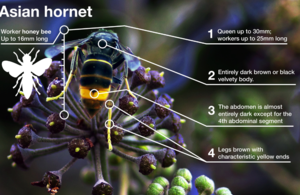UK Trade Commissioner Jonathan Knott travels to Guatemala
Commissioner Knott is visiting Guatemala as part of a tour to Central America to champion UK trade with economic partners in the region.
With this visit, the Commissioner seeks to strengthen bilateral trade relations between the UK and Guatemala, understand the priorities of Guatemala and the projects it has in the pipeline in order to identify key areas where the UK can offer its expertise. During these meetings, the Commissioner will highlight the United Kingdom’s interest in continuing to work with Guatemala to create more opportunities that help build closer commercial ties that promote prosperity for both countries.
For that purpose, the Trade Commissioner will meet with senior representatives of the Ministry of Economy, Ministry of Infrastructure, Municipality of Guatemala City, the Central American Bank of Economic Integration –CABEI-, British multinationals established in Guatemala and Guatemalan companies looking to invest into the UK.
The Trade Commissioner will also remark the opportunities that the Association Agreement between the UK and Central America brings to foster the trade relation with Guatemala and promote business possibilities to UK companies looking to expand overseas. He will stress the importance to promote a level-playing field for British companies trying to do more business in Guatemala and strengthen the rule of law to attract more trade and investors to the country.
Commissioner Knott will also stress the need to boosting economic security, by reducing economic dependency on aggressors and creating stronger trade, investment, science and tech ties among allies and partners. He will also present the case to promote a greener economy.
During his visit, the UK Export Finance (UKEF) Regional Head for Central America & the Caribbean will accompany the Trade Commissioner. UKEF is the UK’s export credit agency that offers finance options to projects where UK companies are involved. This will provide an opportunity for Guatemala and the UK to explore ways to help deliver infrastructure and development projects in Guatemala.
According to UK statistics, total trade between the UK and Guatemala was USD 236 million in 2021. Total UK exports to Guatemala amounted USD 88 million; these included cars, beverages, chemicals and specialised machinery. Total UK imports from Guatemala were USD 148 million and included vegetables, fruits, coffee, sugar and beverages.

